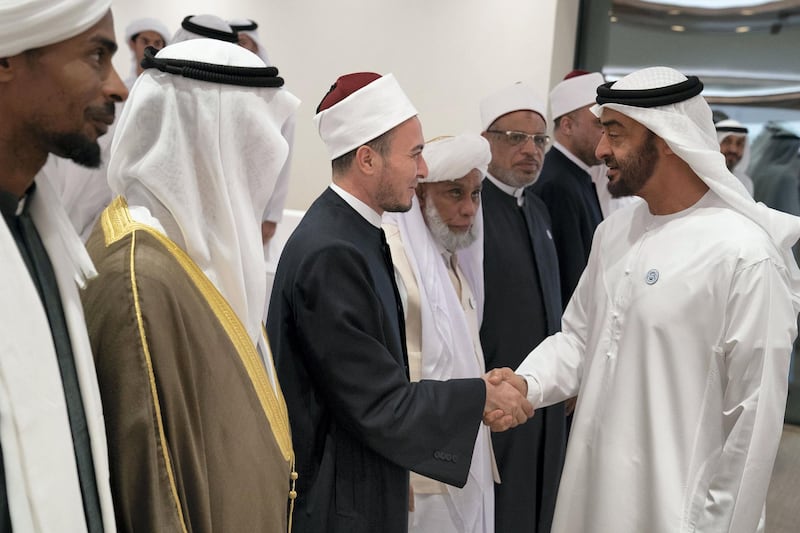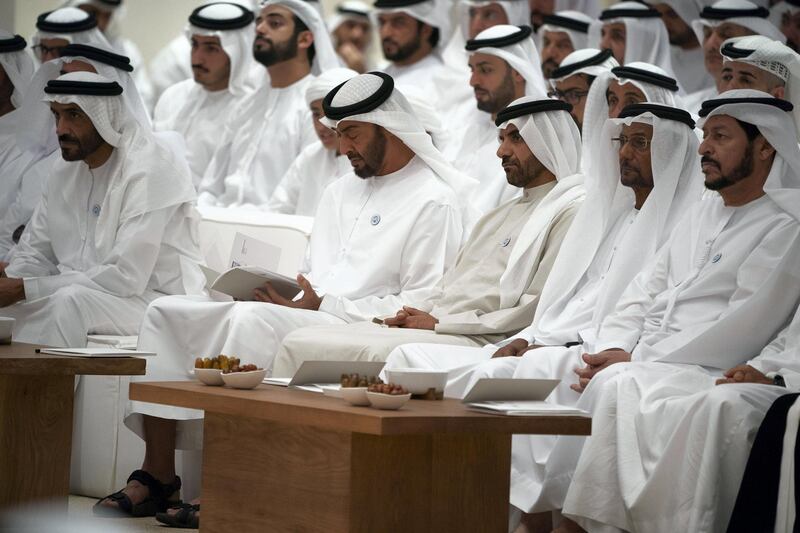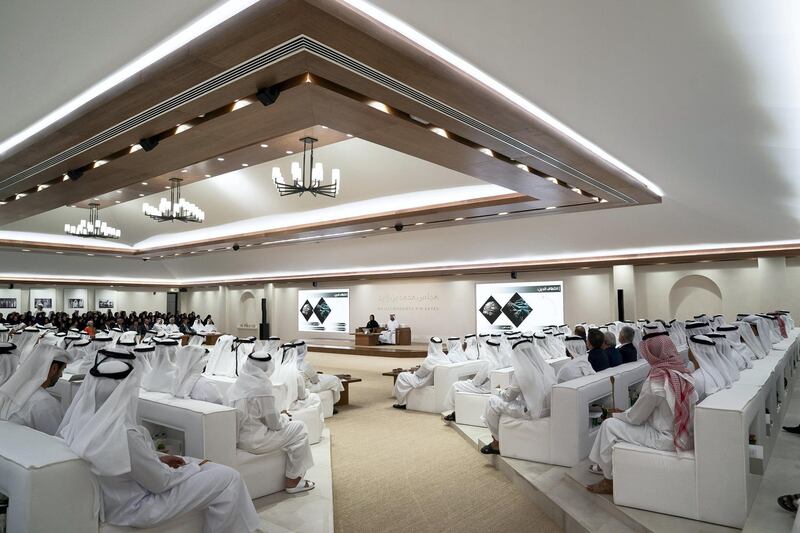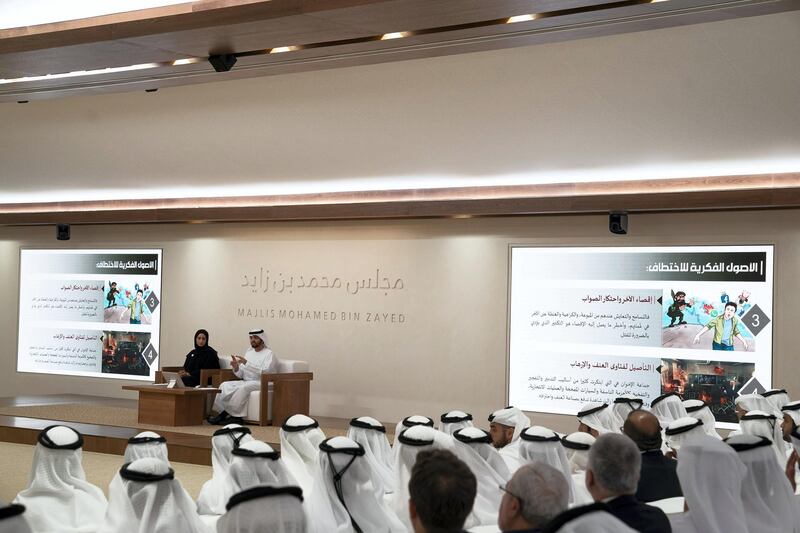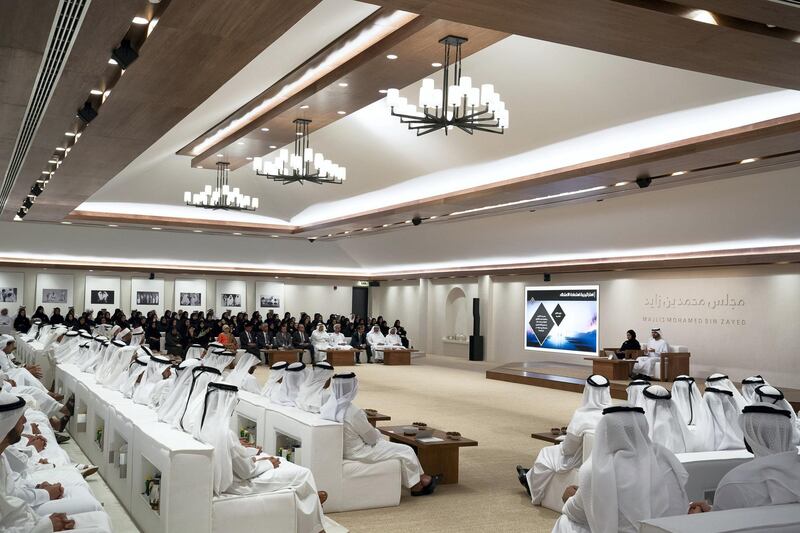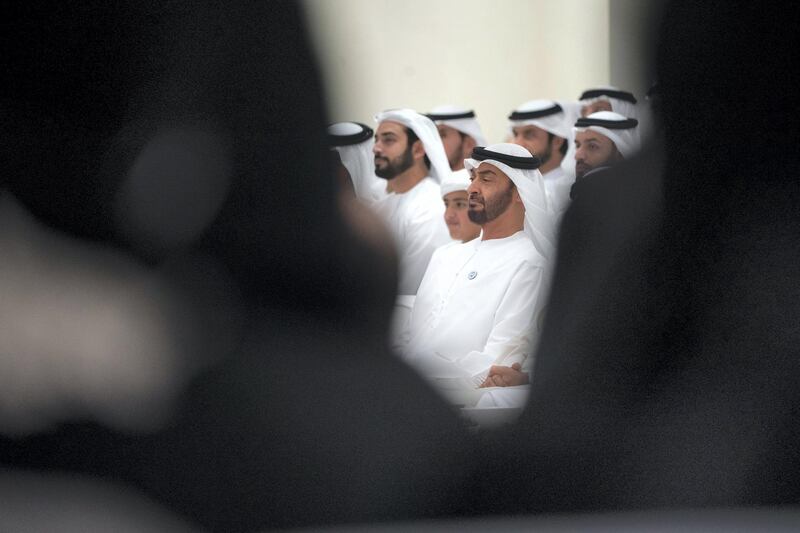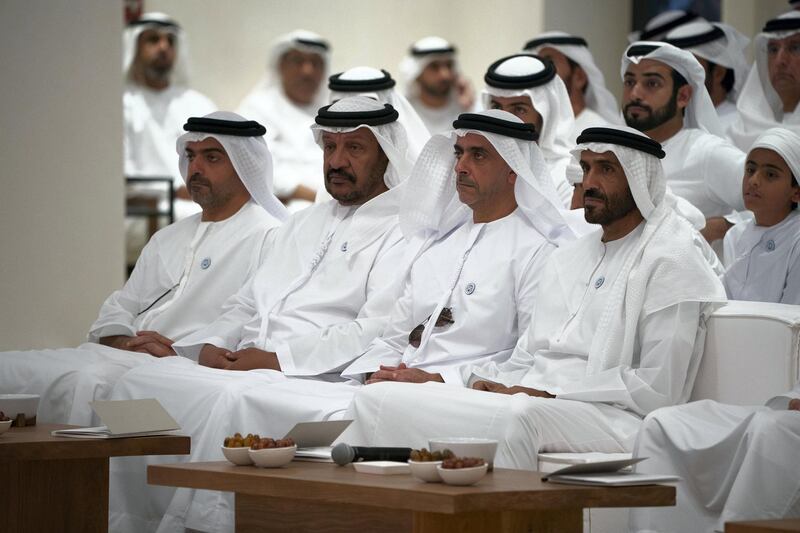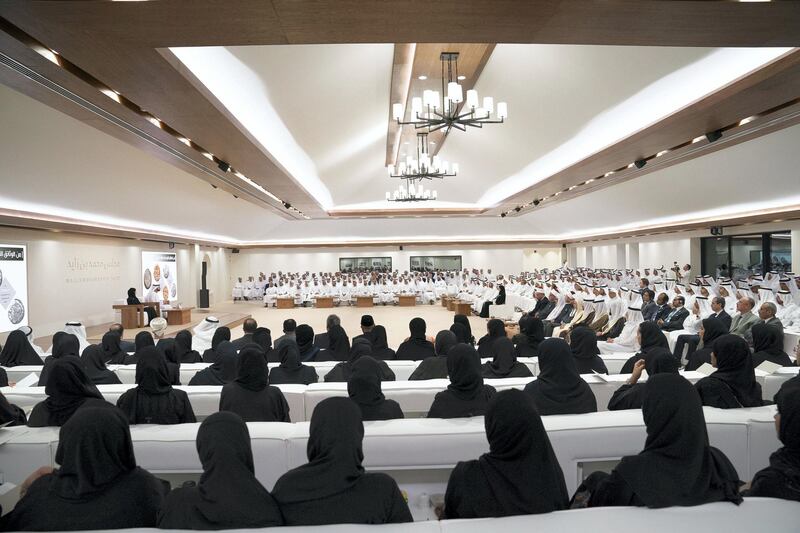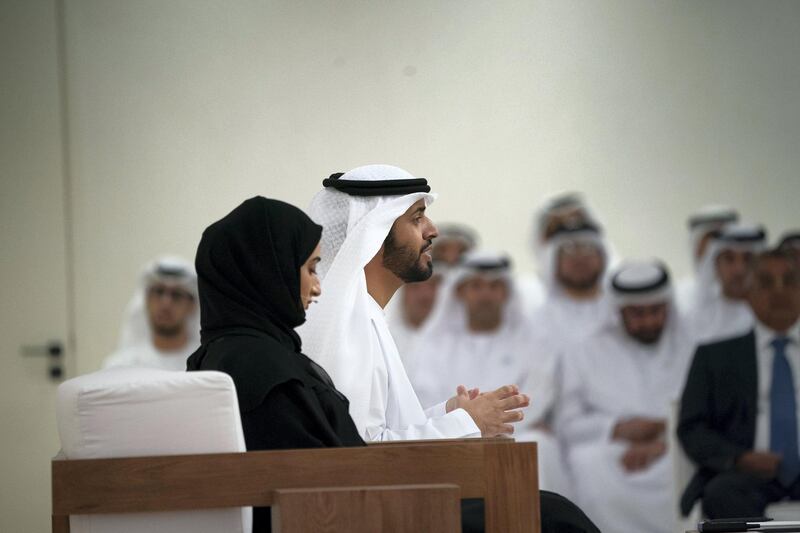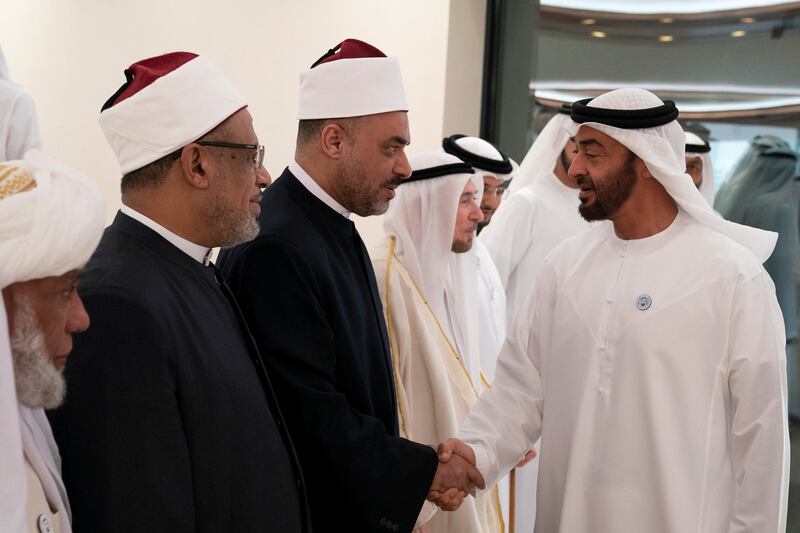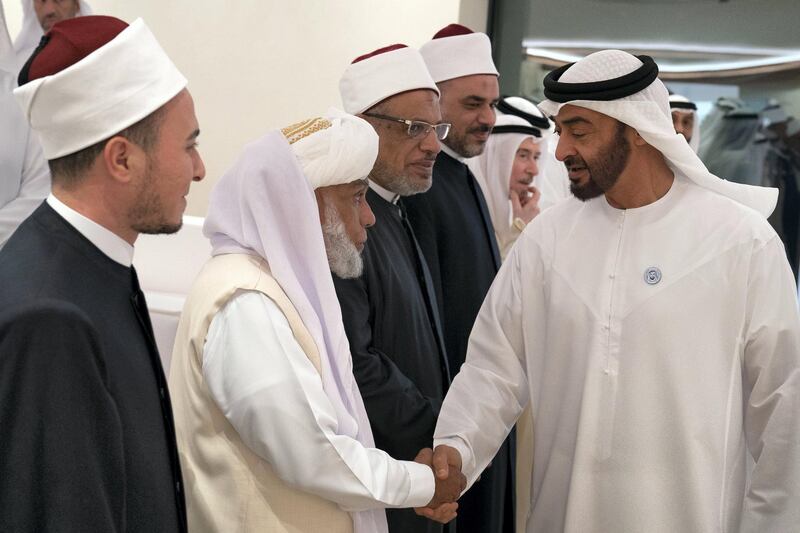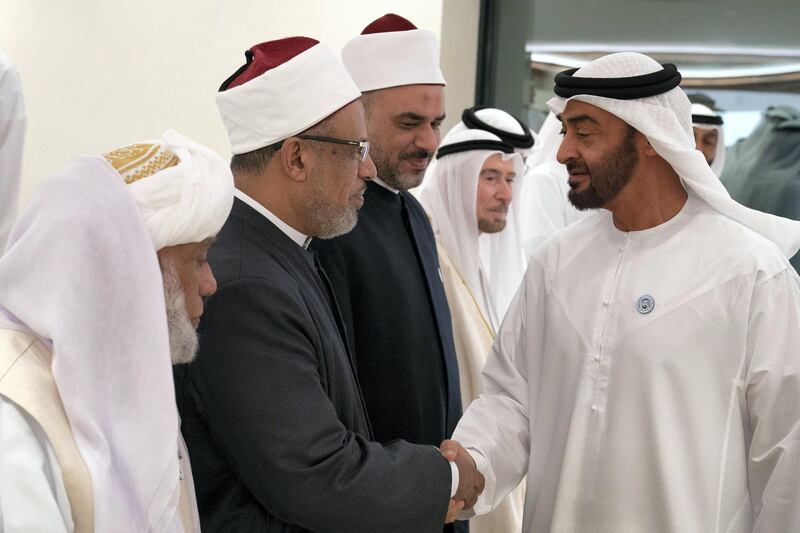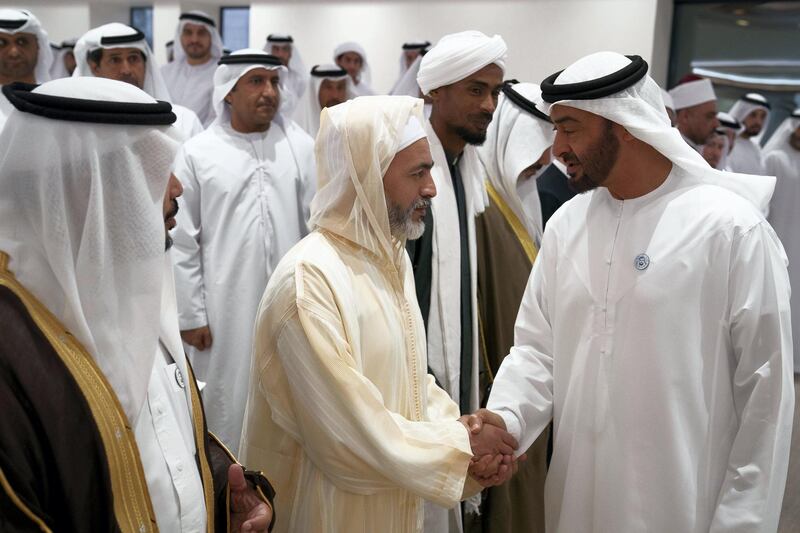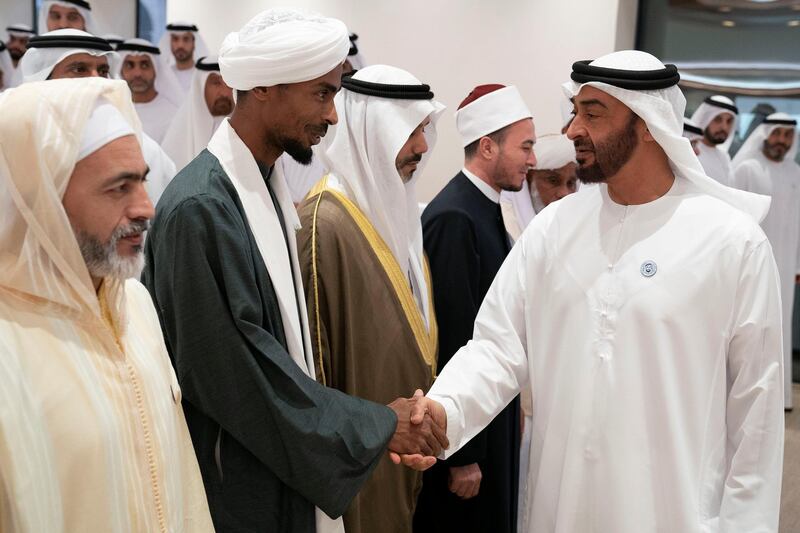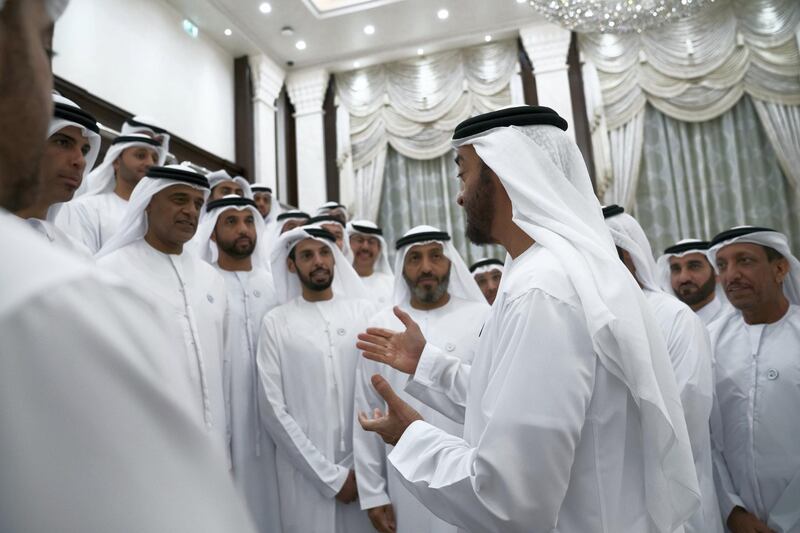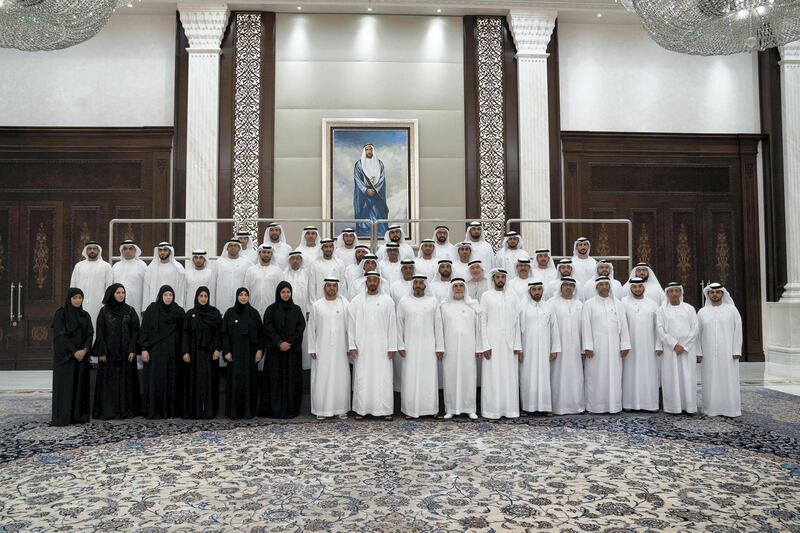Radicals’ attempts to hijack Islam today follows the same pattern as one that was weathered by the Muslim world more than 1,000 years ago, the Crown Prince Court heard.
On Monday, at the inaugural lecture of the annual Crown Prince Court Ramadan series, Omar Al Darei, director of the fatwa department at the UAE Authority of Islamic Affairs & Endowments, said lessons learnt from how the Khawarij were dealt with in the mid-600s could be used again today to counter ISIS’ tactics.
It is said that Prophet Mohammed warned his followers that a rebel group would arise after his death. He was referring to the Khawarij, a group of Muslims who deviated from the leadership of the Caliph Ali bin Abi Taleb, Prophet Mohammed’s son-in-law and cousin. It was the first sect to split from mainstream Islamic thought.
The Khawarij practised an extreme version of Islam and adopted a radical approach to takfir, the Arabic word for declaring self-described Muslims as non-Muslims.
Their overzealous approach is comparable to that of Isis, said Mr Al Darei.
“The hijacking of religion [by radical groups] is not unique to Islam. Every religion has faced this but Islam has been subjected to it many times," he told the majlis, which was attended by Sheikh Mohammed bin Zayed, Crown Prince of Abu Dhabi and Deputy Supreme Commander of the Armed Forces.
_________________
Read more:
How Abu Dhabi's Sawab Centre stops the flow of extremist propaganda
_________________
He said Isis was using similar tactics to Al Khawarij breaking down young peoples’ sense of nationalism and encouraging them to judge others based on their newly adopted ideologies.
Such groups influence young people to turn against their regimes under the concept of ‘hakimiya’ — meaning that only God may rule over and judge people.
The Khawarij used this concept to revolt against the authority of the Caliph Ali after he agreed to arbitration with his rival over the succession to the caliphate. They said that since only God is allowed to pass judgement and make decisions, people should not be involved in arbitration and the matter needed to be settled by God, who also determines the outcomes of war.
A similar concept is used today by ISIS and other extremist groups who believe that modern state regimes are not ruling by the word of God and therefore are infidels who should be fought and brought down.
Throughout history, radicals have also used the power of the media to attract followers.
“They used to promote their ideologies through poetry and now they have countless of channels and social media accounts to spread their messages,” said Mr Darei.
“Hijackers also used religion as a sword against anything new and developed … they have placed suffocating restrictions against certain categories of people — especially women.”
He said they have deprived women of work and even education to minimise their role in directing their children against the destructive path of radicals.
“Women are the most powerful tool to counter attack terrorists, so they decided to trap them,” he said.
“So what strategy can we follow to take back our religion? If we don’t save our religion, we will see more people killed and more refugees.”
The method, he said, is to counter attack terrorists’ messages by clarifying religious ideologies.
He cited Awqaf’s work as an example of an authority working with counter terrorism organisations to produce media publications that explain Islam’s tolerance.
They have been observing radical content and counter-attacking it, he said.
Similarly, he said the peace forum and Muslim Council of Elders are working on the ground to resolve crises and find ways to spread a more tolerant Islam.
